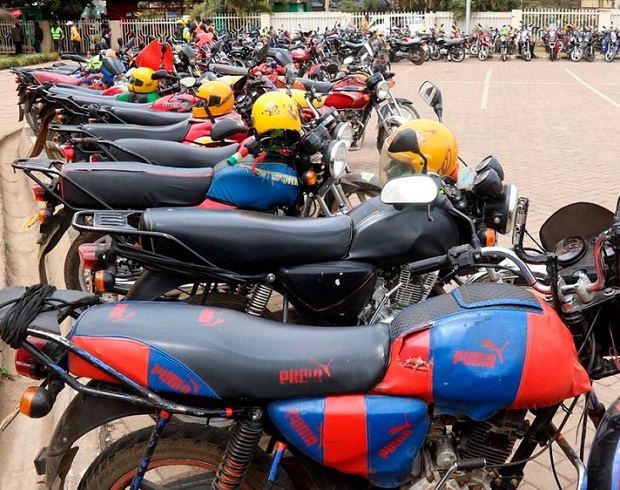I have a boda boda guy

I was recently in Kampala on a training assignment and one of the participants had left one of her devices at home. As many of you 21st Century connectivity addicted netizens know, being without a device is tantamount to a slow, painful, internet starved asphyxiation. But, she had a guy. We all have a guy, but she had hers on speed dial and he has full access to her house. Actually his access extended to her bedroom where the device unforgivably sat on her bedside table and he called her victorious with its discovery. Within 20 minutes of zipping through the metallic sludge that is Kampala traffic, her guy delivered the gadget. “So why does this guy have access all the way to your bedroom?” I asked. “I trust him. He does all my errands for me. Food shopping. Picking up dry cleaning. Depositing cash in the bank. I don’t know what my life would be without his excellent service,” she replied, almost irritated that it was not so obvious.
Another participant who was part of the conversation jumped in. “I don’t know what mothers would do in this town without their bodaboda guys. Mine goes to the uniform shop to buy swimming caps when the school calls me to say my child has forgotten to bring hers again. He goes to the shops and buys vegetables, even when I don’t have the money to send to him at the time, because he knows I will repay him later in the evening. He has picked my children from school when I am delayed somewhere due to work,” she said reflectively. She then paused and let out a quiet laugh. “These bodaboda guys give us loans, are our drivers and our domestic affairs assistants. What would we do without them?”
This is a completely unintended consequence of the unspoken policy decisions in both Kenya and Uganda. Policies that encourage the growth of this ubiquitous and unregulated transport option that provides much needed employment for youth in the two countries where the youth bulge is a clear and present socio-economic danger. Originally envisaged to provide transportation solutions, many of the more reliable bodaboda riders have evolved to become trusted errand runners in both Uganda and Kenya and a critical cog to middle class urban lives. Let’s park that fact for a minute.
What do the American Fortune 500 companies such as Alphabet (Google’s parent company), Microsoft, Starbucks, Adobe, Novartis and IBM have in common? They are all headed by chief executive officers of Indian descent. Sundar Pichai at Alphabet, Satya Nadella at Microsoft, Lakshman Narasimhan at Starbucks, Shantanu Narayen at Adobe, Vasant Narasimhan at Novartis and Arvind Krishnan at IBM. These are just a few examples of the curious phenomenon that 10% of the Fortune 500 companies are headed by CEOs of Indian descent.
According to the United Nation’s World Migration Report published in 2022, India had the highest number of people living abroad. Apparently about 17.9 million people who were born in India were recorded to be living outside the country. Being an English speaking country with a highly competitive education system it is no wonder that Indian immigrants will assimilate faster into the American professional economy and excel in some cases, after all cream always rises to the top. All this without any Indian government intervention or involvement save for the issuing of the original passport that got those individuals out of the country in the first place.
Interestingly enough though, the Indian government does have a legislative framework for its emigrant workers which is primarily aimed at protecting the unskilled labor that fills the worker camps in the Gulf states. The 1983 Emigration Act specifically exempts professionals who have degrees and diplomas and is focused on ensuring that recruitment agencies are registered and regulated to protect uneducated citizens seeking employment abroad from avaricious and unscrupulous agents (something we can painfully learn from in our very own sun kissed Kenya).
The bodaboda phenomena in East Africa has yielded a working class of youth that have transformed many homes of the riders and their customers in ways that were not imagined by the respective governments. The education system in India has churned out millions of highly talented, English speaking workers that have thrived outside of the country and are making their mark in the global economy. In both situations, it is in spite of rather than because of government policy. Imagine what would happen if governments gave as much attention to labor as a natural resource as they do to oil and other minerals?
Twitter: @carolmusyoka
 info@carolmusyoka.com
info@carolmusyoka.com
 carolmusyoka consultancy
carolmusyoka consultancy
 @carolmusyoka
@carolmusyoka